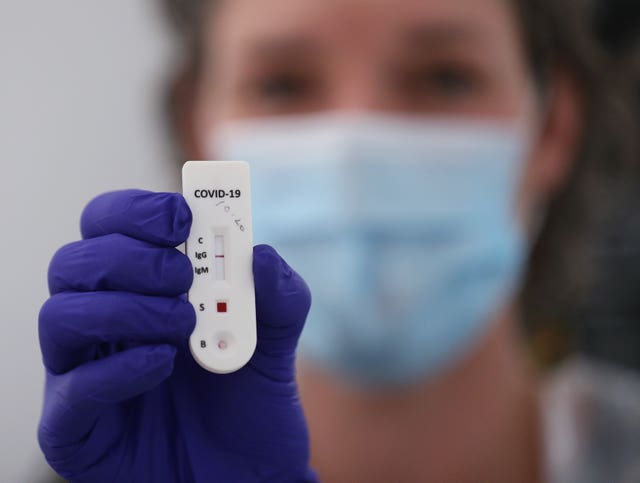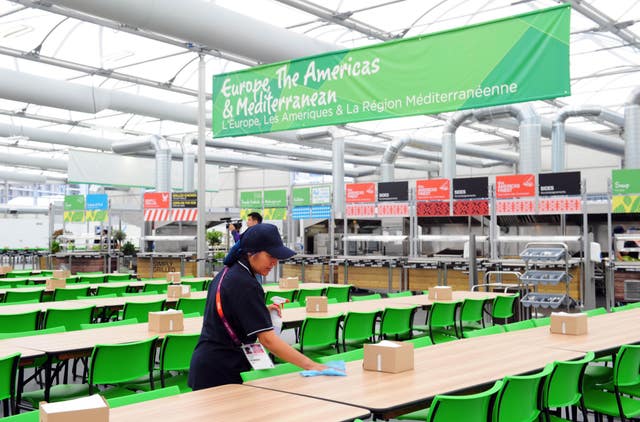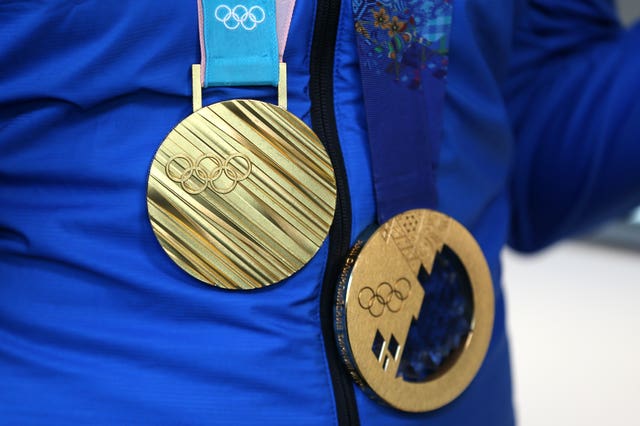Olympic and Paralympic athletes have been given updated guidance on Covid-19 safety protocols for the Tokyo 2020 Games in the form of a new 60-page 'playbook'.
Here, the PA news agency looks at some of the detail within the document.
What does the playbook cover?
Building on February's publication, the new Playbooks provide more specific details to @Tokyo2020 participants on COVID-19 countermeasures based on science and benefiting from learnings gathered during the evolution of the pandemic.https://t.co/PLJuUi2il7
— IOC MEDIA (@iocmedia) April 28, 2021
Pretty much every aspect of a competitor's stay in Japan from beginning to end – including how they travel, train, eat and even conduct media activity. Athletes will need to provide proof of two separate negative coronavirus tests within 96 hours of their departure flight to Japan and will be tested every day once in the country. On entry they must produce an activity plan providing detail on their intended whereabouts during their stay and also a copy of a written pledge which states that Tokyo 2020 takes responsibility for their compliance with the playbook rules.
What about quarantine?

All visitors to Japan – athletes included – must go immediately from airport to accommodation and stay there for three days after their day of arrival. The hope is that this will mitigate against new strains being introduced to the city, which is currently in a state of emergency due to a rise in infections.
What happens if an athlete tests positive, or fails to comply with the playbook?

Those with a confirmed positive test must isolate or be hospitalised, depending on the severity of their symptoms. The location and length of that isolation will be determined by the Japanese health authorities. Breaches of the playbook will be met by disciplinary action proportionate to the breach. For example, intentional refusal to take a test could result in expulsion from the Games.
What about daily life for athletes in Japan?

Travel must be exclusively by dedicated Games vehicles, on which passengers must refrain from conversation. Meals must be eaten at Games facilities, at restaurants within a Games participants' accommodation, or be room service or a delivery.
Are there any other notable restrictions?

Interviews between athletes and reporters in mixed zones will be limited to a maximum of 90 seconds, while athletes must wear face coverings for their crowning moment – the medal ceremony.
What happens next?
The five parties today agreed on measures to ensure the safe organisation of @Tokyo2020 :1⃣ Updated COVID-19 countermeasures addressing new strains and the evolving situation2⃣ Decision on venue capacity to be made in June following government's guidancehttps://t.co/mh8EoBkWOp
— IOC MEDIA (@iocmedia) April 28, 2021
A final version of the playbook will be published in June. International Olympic Committee executive director Christophe Dubi warned if it was felt even greater restrictions were required at that stage, so be it. He said: "These Games for all of us will be different but they reflect the sign of the times. Everybody is saying the more precise and stricter (the rules) the better, for one reason – safety first, for Japanese people and all participants."
/https%3A%2F%2Fsportsmole-media-prod.s3.gra.io.cloud.ovh.net%2F22%2F25%2Fnikita-mazepin.jpg)
/https%3A%2F%2Fsportsmole-media-prod.s3.gra.io.cloud.ovh.net%2F23%2F08%2Feilanh.jpg)
/https%3A%2F%2Fsportsmole-media-prod.s3.gra.io.cloud.ovh.net%2F22%2F51%2Flyu-xiaojun.jpg)
/https%3A%2F%2Fsportsmole-media-prod.s3.gra.io.cloud.ovh.net%2F24%2F46%2Fjude-bellingham.jpg)
/https%3A%2F%2Fsportsmole-media-prod.s3.gra.io.cloud.ovh.net%2F24%2F49%2Fcharlotte-dujardin.jpg)
/https%3A%2F%2Fsportsmole-media-prod.s3.gra.io.cloud.ovh.net%2F24%2F36%2Fhannah-cockroft.jpg)
/https%3A%2F%2Fsportsmole-media-prod.s3.gra.io.cloud.ovh.net%2F24%2F35%2Fpoppy-maskill_1.jpg)